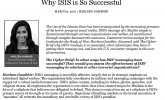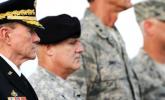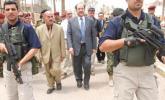March 22, 2022 - ISW Press
The initial Russian campaign to invade and conquer Ukraine is culminating without achieving its objectives—it is being defeated, in other words. The war is settling into a stalemate condition in much of the theater. But the war isn’t over and isn’t likely to end soon. Nor is the outcome of the war yet clear. The Russians might still win; the Ukrainians might win; the war might expand to involve other countries; or it might turn into a larger scale version of the stalemate in Ukraine’s east that had persisted from 2014 to the start of Russia’s invasion in February 2022. The failure of Russia’s initial military campaign nevertheless marks an important inflection that has implications for the development and execution of Western military, economic, and political strategies. The West must continue supplying Ukraine with the weapons it needs to fight, but it must now also expand its aid dramatically to help keep Ukraine alive as a country even in conditions of stalemate.











